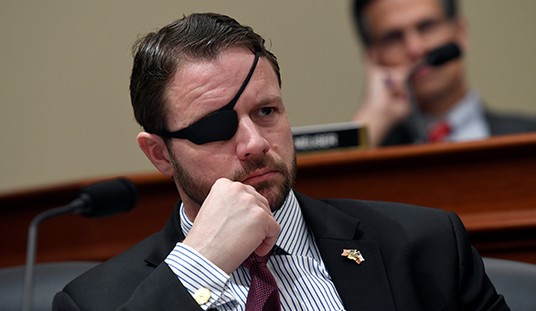In Coolidge, her elegant and engrossing biography of the 30th president, Amity Shlaes writes that perhaps the deepest reason for Coolidge’s recent obscurity is that he “spoke a different economic language from ours”:
He did not say “money supply”; he said “credit.” … He did not say “private sector”; he said “commerce.” He did not say “savings”; he said “thrift” or “economy.” … Coolidge at the end of his life spoke anxiously about the “importance of the obvious.” Perseverance, property rights, contract, civility to one’s opponents, silence, smaller government, trust, certainty, restraint, respect for faith, federalism, economy, and thrift: these Coolidge ideals intrigue us today as well.
Coolidge spoke in concise language about character, culture, and religion, all of which he considered we needed more than bigger government:
We do not need more intellectual power, we need more moral power. We do not need more knowledge, we need more character. We do not need more government, we need more culture. We do not need more law, we need more religion. We do not need more the things that are seen, we need more of the things that are not seen.
Back in 1924, when the first biography of Coolidge appeared, it was prominently reviewed in the New York Times Book Review. The reviewer thought the author’s claim that Coolidge’s speech to the Massachusetts Senate as its president had been quoted as often as any in American history other than Lincoln’s Gettysburg address was an exaggeration; but that “if the speech has not been quoted as often as [the author] thinks it has, it deserves to be.” Parts of that speech, he wrote, “ought to be in every American citizen’s Bible.” He singled out this paragraph:
Do the day’s work. If it be to protect the rights of the weak, whoever objects, do it. If it be to help a powerful corporation better to serve the people, whatever the opposition, do that. Expect to be called a standpatter, but don’t be a standpatter. Expect to be called a demagogue, but don’t be a demagogue. Don’t hesitate to be as revolutionary as science. Don’t hesitate to be as reactionary as the multiplication table. Don’t expect to build up the weak by pulling down the strong.
Fast forward nearly a century, to the February 17, 2013 review of Coolidge in the New York Times Book Review, which treated the book as part of an attempt to “resurrect” Coolidge as a “prophet” of an “austere doctrine” of “Republican Calvinism,” with a “liturgy” based on Coolidge’s belief that the federal government should shrink, not grow.
The use of the religious imagery was not intended as complimentary. The reviewer asserted that Coolidge’s “actual record” shows he was “an extraordinarily blinkered and foolish and complacent leader” who is “no model for the present,” but rather “a bleak omen from the past.”
Coolidge’s “actual record”: he inherited a national debt of $28 billion and reduced it to less than $18 billion; he cut the top income tax rate to 25% while balancing the budget and producing surpluses each year; and unemployment was reduced from 5.7 million at the beginning of the decade to 1.8 million when he left office. The economy became popularly known as the “Coolidge prosperity.”
As actual records go, that is not too bad — particularly compared to more recent ones.
The last four years have shown that “stimulus” (which Coolidge would have called “spending”) and “investments” (which Coolidge would have called “spending”) are not panaceas, but rather part of the problem. We have also learned that it is extraordinarily blinkered and foolish for a government that already has unsustainable financial obligations for existing “entitlements” (which Coolidge would have called “spending”) to enact not only a record “stimulus” and huge new “investments” but also a massive new “entitlement,” relying on borrowed funds and no budget.
It is a bleak omen, produced by a quasi-religious belief in the power of an ever-larger government to produce “fairness” while allegedly adding not one dime to the deficit, nor costing anything for 99 percent of the people, and allowing people who like their plan to keep it, although Catholics with religious objections will be ignored.
It seems less like a model for the present than like the last stage of an unsustainable plan.
We should have known by now that increased “revenues” (or “taxes,” as Coolidge would have called them) depends on a growing private sector (“commerce”) stimulated by lower tax rates. It has already been demonstrated not only by Coolidge, but by Kennedy and Reagan. We should know that the Clinton surplus in its later years was produced not by increased tax rates, but by acts that limited government and stimulated commerce: (1) the rejection of HillaryCare; (2) the welfare reform that imposed work requirements; (3) the NAFTA free trade legislation; and (4) the 40% reduction in the capital gains tax rate (from 28% to 20%).
Most of us know Coolidge only for his legendary reticence. He is famous for having told a woman, who had bet she could get him to say three words, that “you lose.” He once explained why he often sat silently through interviews: “Many times I say only ‘yes’ or ‘no’ to people. Even that is too much. It winds them up for twenty minutes more.” When he died, his will was 23 words long (it left his entire estate to his wife).
Coolidge’s eloquence is much less known, but for eloquence it is hard to match his July 5, 1926 “Address at the Celebration of the 150th Anniversary of the Declaration of Independence” in Philadelphia, with its concluding paragraph that treated the Declaration as “the product of the spiritual insight of the people”:
We live in an age of science and of abounding accumulation of material things. These did not create our Declaration. Our Declaration created them. The things of the spirit come first. Unless we cling to that, all our material prosperity, overwhelming though it may appear, will turn to a barren scepter in our grasp. If we are to maintain the great heritage which has been bequeathed to us, we must be like-minded as the fathers who created it. We must not sink into a pagan materialism. We must cultivate the reverence which they had for the things that are holy. We must follow the spiritual and moral leadership which they showed. We must keep replenished, that they may glow with a more compelling flame, the altar fires before which they worshiped.
Is it too late for us to recover the values in the public sphere that Coolidge embodied, and to re-establish a more limited government as an ideal? Perhaps. Coolidge lived at a different time, in what seems like a less complicated world.
But Dr. Benjamin Carson’s recent speech at the National Prayer Breakfast is an indication that the values Coolidge articulated still resonate. (The YouTube videos of the speech have been viewed by nearly three million people so far.) The speech was Coolidge-like in its understated eloquence, its focus on moral decay and fiscal irresponsibility, its religious power and sense of history, and its warning against trying to build up the weak by pulling down the strong.
If we are unable to recover the values Coolidge championed, and if our politics cannot produce another president like him, it will ultimately say less about Coolidge than about us.
Related: For Ed Driscoll’s recent interview with Amity Shlaes, the author of Coolidge, click here for the audio and transcript.









Join the conversation as a VIP Member